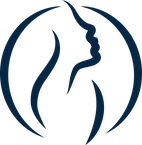
- Facelift Instruction
- Fat Grafting Instructions
- HAIRLINE Advanement Instructions
- Laser Liposuction Instruction
- Light or Med Laser Resurfacing Instructions
- Neck Lift Instructions
- Otoplasty Instruction
- Rhinoplasty Instruction
- Brow Lift Instructions
- Buccal Fat Instructions
- Deep Laser Resurfacing Instructions
- Eyelid Surgery Instructions
- Lip Lift Instructions
